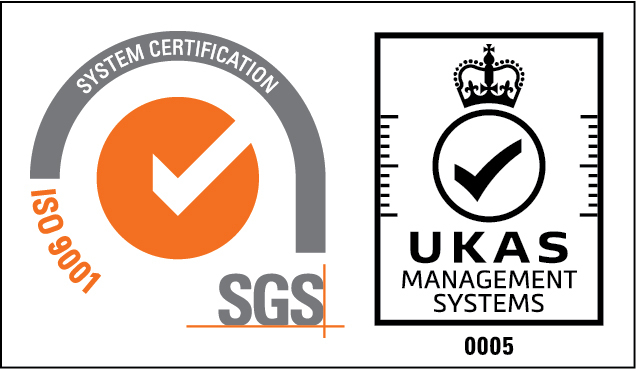Property
From Premises to Portfolios




Property matters have the potential to be among the most stressful experiences in life. Our property department has extensive conveyancing experience ranging from the first time buyer, to the small business purchasing its first lease, right through to large organisations and multinational companies with complex portfolio requirements.
We handle a truly unique range of specialist transactions to reflect the expertise within our firm, for example intricate planning issues, complex building contracts and extensive public consultation for schools or distressed sales by an Insolvency Practitioner. We are committed to ensuring that all property transactions as smooth and seamless as possible by offering you an efficient service based on expert knowledge and experience.
We are always mindful of the need to deliver competitive rates without compromising quality of service.
The key to building successful client relationships is communication. We will provide you with clear, honest advice at the most significant points of the process.
Our property department has extensive conveyancing experience ranging from the first time buyer, to the small business purchasing its first lease, right through to large organisations and multinational companies with complex portfolio requirements.
Why Choose Napiers?
- Our work for private individuals, local businesses, religious organisations and major international corporations involves every conceivable type of transaction in both a domestic and commercial context from short-term licences, to easements, partnership agreements, protected tenancies, adverse possession, freehold acquisitions and dispositions, issues of preservation in relation to churches, and boundary disputes in the context of school and development sites. We often deal with unusual situations that are not encountered (or only rarely so) by most firms. This diverse experience has enabled us to develop an expertise which far exceeds the remit of a standard conveyancing practice.
- We were the first NI Law Firm to have both ISO & Investors in People accreditation, demonstrating our pro-active approach to maintaining quality standards in our dealings with and on behalf of our clients.
- Our solicitors don’t simply oversee the transaction, they have personal carriage of each and every stage of the process- a service which is becoming increasingly rare in high volume conveyancing practice.
- Napiers is on the panel of all major lenders in the Northern Ireland property market; this is something that few law firms can say given the strict pre-conditions required by major lenders.
- We offer a personalised service, tailored to your circumstances. Our team strive to use an friendly approach, while maintaining highest professionalism.
- As dedicated members of the Home Charter Scheme, our clients can have confidence in the value of the service we provide and that our pricing will be fair.
Specialist Areas: At a Glance
| Commercial | Domestic |
|---|---|
|
Purchase and sale of commercial freehold or |
House purchases and sale |
| Commercial lettings | Re-mortgages |
|
Assignment of a commercial tenant's interest |
Adding people to, or removing them from, the Title |
| Adverse possession (squatters' rights) | Adverse possession (squatters' rights) |
| Boundary disputes | Boundary rectification/disputes |
| Rights of way and other easements | Buying the interest of a Trustee in Bankruptcy in the family |
| Insolvency-related property transactions | Rights of way and other easements |
| Letting of dwellings |
Key Contacts
Frequently Asked Questions
-
What is Stamp Duty?
Stamp Duty is a tax charged by the Government on property transactions. The rates vary depending on whether you are an individual buying a dwelling or a Company buying a commercial property and also vary according to the price you are proposing to pay. We can provide advice on the Stamp Duty implications of your transaction when you give us the details. From 1st October 2021 the normal Stamp Duty rate applicable in Northern Ireland on residential property begins at 1% on purchase prices from £125,000.00 upwards.
There are discounts for first time buyers: so, if everyone buying the property is a first-time buyer, Stamp Duty Is not charged below £300,000.00. On the other hand, people acquiring additional properties that are not a replacement for their main residence may face enhanced Stamp Duty (“the higher rate”) of an additional 3% above the standard rate.
-
What is the difference between freehold and leasehold ownership?
Freehold means that you have no “Ground Landlord” who can enforce covenants and conditions and may be entitled to collect ground rent. However, if you are living in a modern development, the fact that you have freehold title usually means that your title is still subject to various covenants and conditions which can be enforced either by a Management Company, the original Developer of the development and/or your neighbours.
Leasehold ownership means a “Long Lease” with at least 80 years remaining on the term (it can be risky to buy a property with less than 100 years remaining because mortgage lenders will not usually lend if there is less than 80 years remaining, so you could face issues on a re-sale). Given what we have just said about freehold ownership there are few practical differences apart from that. The main distinction is that a Leasehold property may be subject to a ground rent of anything from one penny (if demanded) to a couple of hundred pounds a year.
Leasehold properties in Northern Ireland are not afflicted by the “escalator” clauses which have had such widespread coverage in the English press recently. Among other things, it has not been possible to create a new Leasehold title in respect of a house in Northern Ireland since 1997. Flats and Apartments are a different situation: Leaseholds can still be created in relation to Flats and Apartments within a Block. There are technical/legal reasons for this. When we are acting for any purchaser, we provide a Report on Title that outlines the covenants and conditions that effect the title (if any).
-
What is the Land Registry & the Registry of deeds – are they the same or different?
The Land Registry and The Registry of Deeds are very different although they do the same basic job: They provide a record of the ownership of property. The Registry of Deeds is the older system and is being phased out. If you are buying a property which is currently dealt with through the Registry of Deeds system, your Solicitor will need to convert the title to a Land Registry title through a process called “compulsory first registration”.
Many firms charge an additional professional fee over and above their original estimate if the title turns out to be subject to this process: we do not. The main distinction between Land Registry and the Registry of Deeds is that the Land Registry provides a record of ownership of various areas of land which can be identified through the Land Registry map whereas the Registry of Deeds merely keeps a record of the existence of documents which have changed the ownership of pieces of land. In practical terms this means that for Land Registry properties there is a comprehensive map maintained by the Land Registry that one can access through the internet.
This map shows the location and approximate boundaries of the areas of land that are registered with the Land Registry along with the ownership of the land and major interests of third parties such as Mortgage Lenders. With the Registry of Deeds, in order to determine current ownership, one normally needs to know the name of a current or previous owner in order to carry out a “search” in the Registry of Deeds records to try to establish the existence of any documents which may have impacted on that ownership. In addition, the Land Registry retains a scanned copy of all documents that have effected changes to the ownership of land so that if documents are lost or destroyed, they can in almost all cases be readily “reconstructed” through the Land Registry system. For Registry of Deeds property, the process is much more difficult.
-
What is an EPC?
An EPC is an Energy Performance Certificate. If you have bought an electrical appliance recently you will probably have noticed a colour chart either stuck to the appliance in the showroom or on the box in which the appliance is delivered.
The EPC is the similar document in respect of properties and is a record of the current approximate energy efficiency of the property. For domestic properties it will contain within it suggestions for things that might be done to improve energy efficiency. Just because a property is not particularly energy efficient does not mean it is “bad”. Historic properties which are full of character and very attractive to purchasers almost always have relatively poor EPC ratings, simply because of the materials and techniques that were used at the time they were built.
EPCs are advice and not mandatory: you do not have to take any of the steps to increase the energy efficiency although there are clear benefits for doing so including potential savings on the cost of your energy bills.
-
What are searches & property certificates?
Searches and Property Certificates are records of checks carried out on various Public Registries in relation to property. They cover such matters as confirming who the current owner is and whether there are any Mortgages or Debt Judgments registered against the property they are selling; whether or not the current owner is Bankrupt/Insolvent or possibly in danger of becoming so; what the Planning and Building Control history of the property is (from 1973 in relation to Planning and from 10 years ago in relation to Building Control) and whether Government Agencies may be about to take some significant action in relation to the property, whether Planning or Building Control Enforcement or compulsory acquisition of all or part of the property for road widening or some other public works.
It is very important to get these documents before completing a property purchase and we strongly advise waiting until they are all available before signing a Contract.
-
We did work to our house: is that a problem if we sell?
Not usually, as long as the work was done properly and had the required Planning and Building Control approvals. If you do not have a record of getting approvals we can advise generally on whether or not those approvals were necessary and whether that may still be an issue (some approvals become irrelevant after a certain period).
-
We have a septic tank rather than mains sewerage: are there any special issues?
A septic tank should have a valid “Consent to Discharge Effluent” issued by the Department of Agriculture, Environment and Rural Affairs (DAERA). This is so regardless of when the tank was installed: it does not matter if the tank pre-dates the legislation.
If there are no obvious issues with the tank (no smells, water seepage etc.), consent should not normally be an issue; but, it can take several months for DAERA to process an application.
If you have a septic tank and are not sure there is a consent, you should check whether a consent is registered for your house (this can be done online). If there is nothing registered, there may still be one and your house deeds should be checked.
If one still cannot be found, you will probably need to apply for one. We can put you in contact with agents specialising in obtaining these consents (the process can be quite tricky).
Testimonials
“An environment which embraces and promotes innovative thinking.”
"A genuine sense of a willingness to support, listen and assist.”
“There is a very constructive and engaging culture where people really feel motivated and responsible for delivering on targets and deadlines.”



